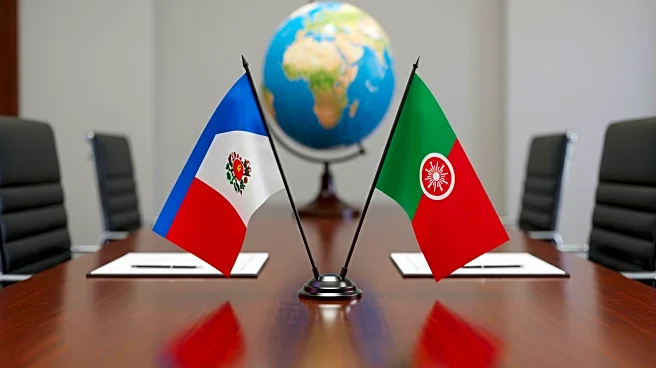What's Happening?
Russia launched a ballistic missile and drone attack on Kharkiv, Ukraine, resulting in the deaths of three individuals, including a two-year-old child, and injuring 17 others. The strikes occurred just hours before President Trump and Ukrainian President Volodymyr Zelensky are scheduled to meet at the White House to discuss a potential peace deal to end the ongoing conflict. The attacks targeted civilian infrastructure, with rescue operations underway to find survivors trapped under the rubble. Kharkiv has been a frequent target since Russia's invasion in February 2022.
Why It's Important?
The timing of the Russian strikes on Kharkiv underscores the urgency and complexity of the peace talks between President Trump and President Zelensky. The conflict has had significant humanitarian impacts, with civilian casualties continuing to rise. The meeting at the White House is crucial as it aims to negotiate a long-term resolution to the war, which has strained international relations and affected global security. Both Russia and Ukraine have vested interests in the outcome, with territorial disputes and regional stability at stake.
What's Next?
The discussions in Washington, D.C. are expected to focus on a permanent resolution to the conflict rather than a temporary cease-fire. President Trump has indicated that both Russia and Ukraine must gain concessions for a peace deal to be effective. The negotiations will likely address territorial claims, particularly Russia's interest in the Donetsk region. The outcome of these talks could significantly influence the geopolitical landscape in Eastern Europe and set a precedent for future conflict resolutions.
Beyond the Headlines
The ongoing conflict in Ukraine highlights broader issues of international law and the protection of civilian populations during wartime. The strikes on Kharkiv raise ethical questions about the targeting of civilian infrastructure and the responsibilities of warring nations to minimize harm to non-combatants. The peace talks may also influence global diplomatic strategies and the role of the United States in mediating international conflicts.









